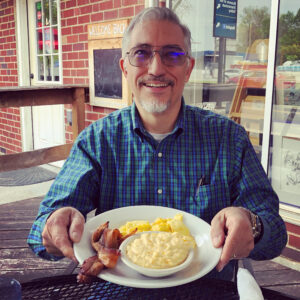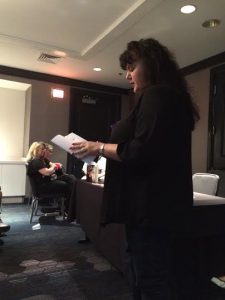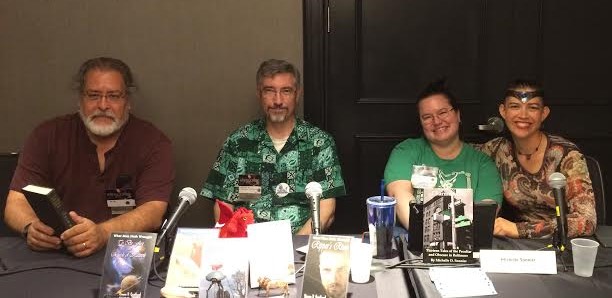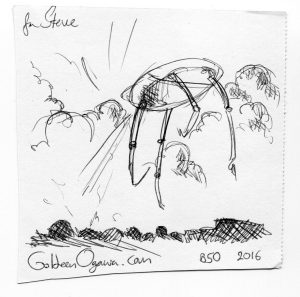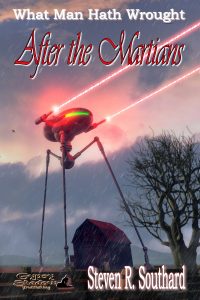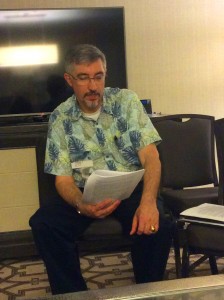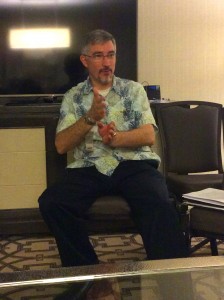You’ve advanced enough in the writing biz that you’re scheduled to speak as a panelist at a conference. Or perhaps the organizers asked you to moderate (lead) a panel. However, you’ve never done either one before, and you’re wondering how to perform these roles. Perhaps reading this post will help pass the time while you work up the gumption to seek valuable advice.
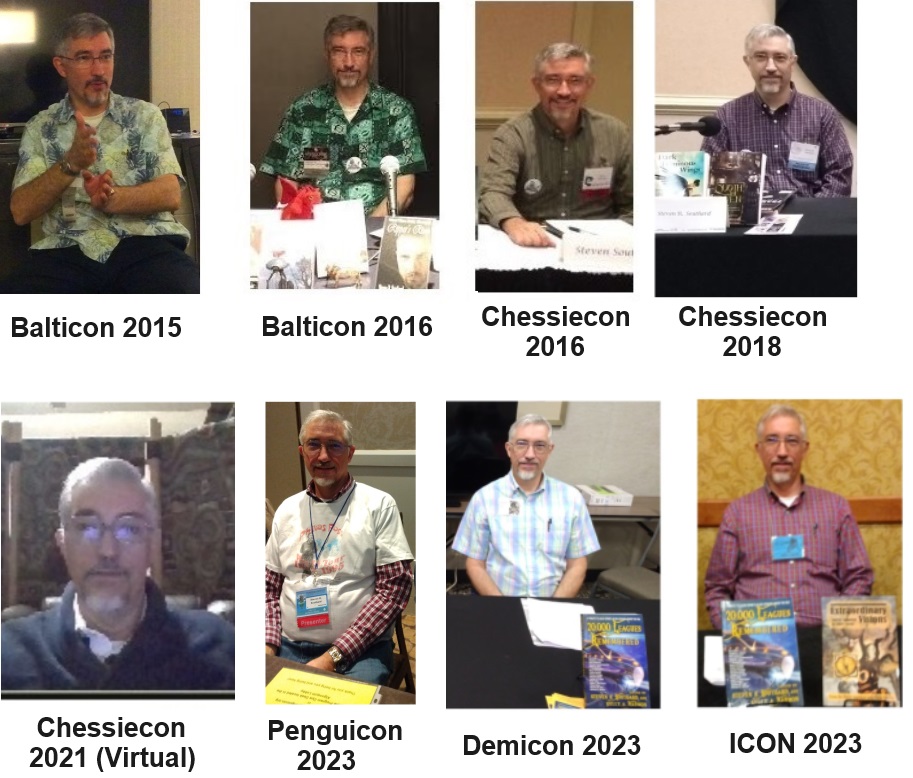
Brief Boast
First, by way of unrelated bragging, I should mention that the nice folks at Feedspot have chosen my blog as one of the ten best book launch blogs. Perhaps they picked my blog because of all the author interviews I’ve conducted. Or perhaps it’s because people who read my posts feel impelled to launch my books into orbit to spare other readers from misery. In either case, I feel honored by the selection.
Conference Attendees
Think of a conference (writer’s con, or a genre-specific con, like the scifi ones I frequent) from the attendees’ point of view. They peruse the list of panels, wondering which to attend, hoping for the best, but fearing another boring snoozer. For some reason, some chose the panel you’re on. You owe it to those attendees to give it your best, to make the panel experience informative and enjoyable. This is all about them, not you.
Panelist
I’ve blogged about being a panelist before, but I was younger then and hadn’t yet earned my PhD in Panelology. Important, and updated, nuggets of advice follow:
- Prepare. If you’re not an expert on the panel topic, you should do a bit of research—say, five or ten minutes.
- Go light on self-promotion. The audience showed up to hear about the panel topic, not every story you’ve written. Blow your horn just enough to establish your authority on the topic.
- Don’t be afraid to disagree with another panelist, but do so with respect and tact.
- Don’t jaw-wag too long. The audience might have liked you at first, but that attraction fades the longer you drone on and the sleepier they get.
- When you don’t know how to answer a question, pass. Don’t pollute the silence with off-topic blathering.
- In all your answers, err on the side of providing the most educational, useful, and actionable advice to your audience.
Moderator
Having moderated many con panels, I feel qualified to bore you with these bullet points:
- Advance preparation helps a moderator even more than it does a panelist. Develop a list of questions that blanket the topic, emphasizing things an audience member might wish to know. Then arrange the questions in a logical order and highlight the important ones.
- At the con, introduce yourself with humble (and precedence-establishing) brevity and allow your panelists to introduce themselves. You could choose to introduce them yourself, if you’re familiar with their curriculum vitae.
- As you ask your questions, specify whom should answer, and give each panelist equal time.
- Listen to the panelist’s answers. Sometimes those responses will prompt good questions you hadn’t thought of.
- Be alert for controversial or offensive answers, as detected by your read of the room. Don’t just move on as if the transgression hadn’t happened. You might ask the opinionated panelist for a fuller explanation, or ask other panelists if they agree.
- Let disagreements between panelists play out, so long as they’re respectful.
- If things get out of hand, remember—you’re in change. Use your parental voice to silence the bickering children. In the rare extreme, you might have to separate the combatants, expel one or both from the battlefield, or even end the session. If that occurs, stand ready to defend your actions to the con organizers.
- Read the room for signs of boredom. If seen, pep things up. Modulate your voice. Ask a provocative question. Gesticulate.
- Watch the time, so you allow a period for audience questions. When taking questions, try to go in the order hands were raised.
- If the audience runs out of questions, ask the panelists more from your list.
- Leave a little time for final wrap-up statements (and self-promotion) from each panelist. Thank them and thank the audience.
- Stick around long enough to ensure the room is ready for the next panel.
See? You have no reason to worry about serving as a panelist or moderator at your next con. If I can do it, you can do it. You’ll be great. And, after all, you needn’t vault a high bar to surpass—
Poseidon’s Scribe


